Imperial launches search for next generation of entrepreneurs
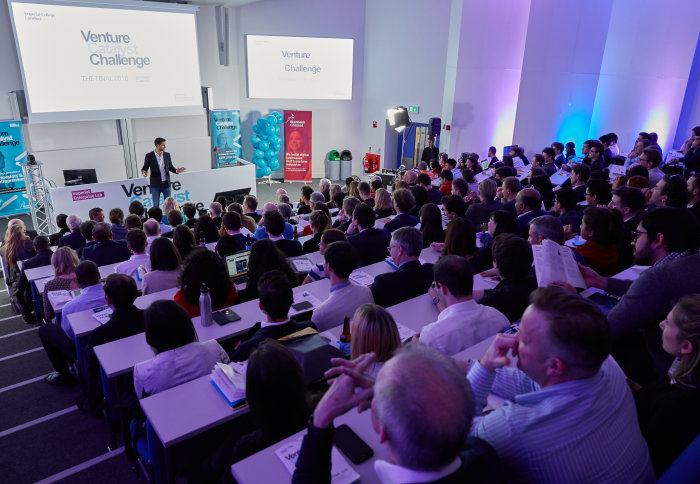
The Venture Catalyst Challenge tasks Imperial students with turning their ideas into new technologies, products and businesses.
The Venture Catalyst Challenge (VCC) is Imperial College London’s flagship entrepreneurial competition. From addressing avoidable blindness to autonomous vehicles, the competition has led to many successful startups that are tackling some of society’s biggest challenges.
Run by Imperial Enterprise Lab, the VCC is powered by Blenheim Chalcot – the UK's leading digital venture builder. It provides access to an intensive seven weeks of masterclasses, coaching, and meetings with experts, before pitching in front of a live audience for funding to support their businesses. This year’s competition is bigger than ever, with £90,000 of prize money up for grabs.
The VCC is made up of five tracks:
- Creative & Consumer
- Digital & Fintech – sponsored by Santander Universities
- Energy & Environment
- Health & Wellbeing – sponsored by P&G Ventures
- Robotics & AI – sponsored by Amazon Robotics
Two new prizes have also been introduced this year in order to award a larger number of teams competing in the programme.
- Moonshot Prize – sponsored by Air Asia
A £10,000 prize to be awarded to one of the competing teams, to reward a team that is challenging the status quo and pushing the boundaries of innovation.
- Social Impact Prize – sponsored by Grosvenor
A £10,000 prize to be awarded to one of the competing teams, to recognise and raise the profile of Imperial teams seeking to make a positive impact on the world.
Find out more about previous VCC success stories
Last year’s competition was won by VUI Diagnostics whose invention could dramatically speed up the diagnosis of diseases that lead to sight loss. Their technology would provide simple, affordable and accurate retinal imaging to help address avoidable blindness around the world.
As well as winning £30,000, the team founded by Imperial medical students Simon Rabinowicz and Uddhav Vaghela, has attracted support from experts at the Western Eye Hospital and Royal Free Hospital in London, where they will soon be starting clinical validation studies.
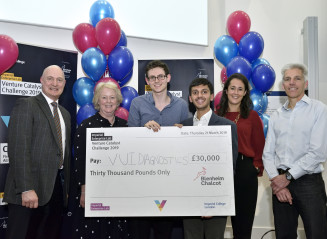
About their venture Simon said: “In addition to our common passion for medicine we share an enthusiasm for technology and we both have an entrepreneurial spirit. We are also people who strive to find viable solutions to problems we encounter in clinical practice.”
"Kick start to our entrepreneurial journey"
Jelly Drops, made up of graduates from the Dyson School of Design Engineering, invented super-hydrating sweets for those with dementia. The bright sweets are made up of over 90% water and can be given to people with dementia to combat dehydration – a full box of Jelly Drops is the same as drinking three cups of water.
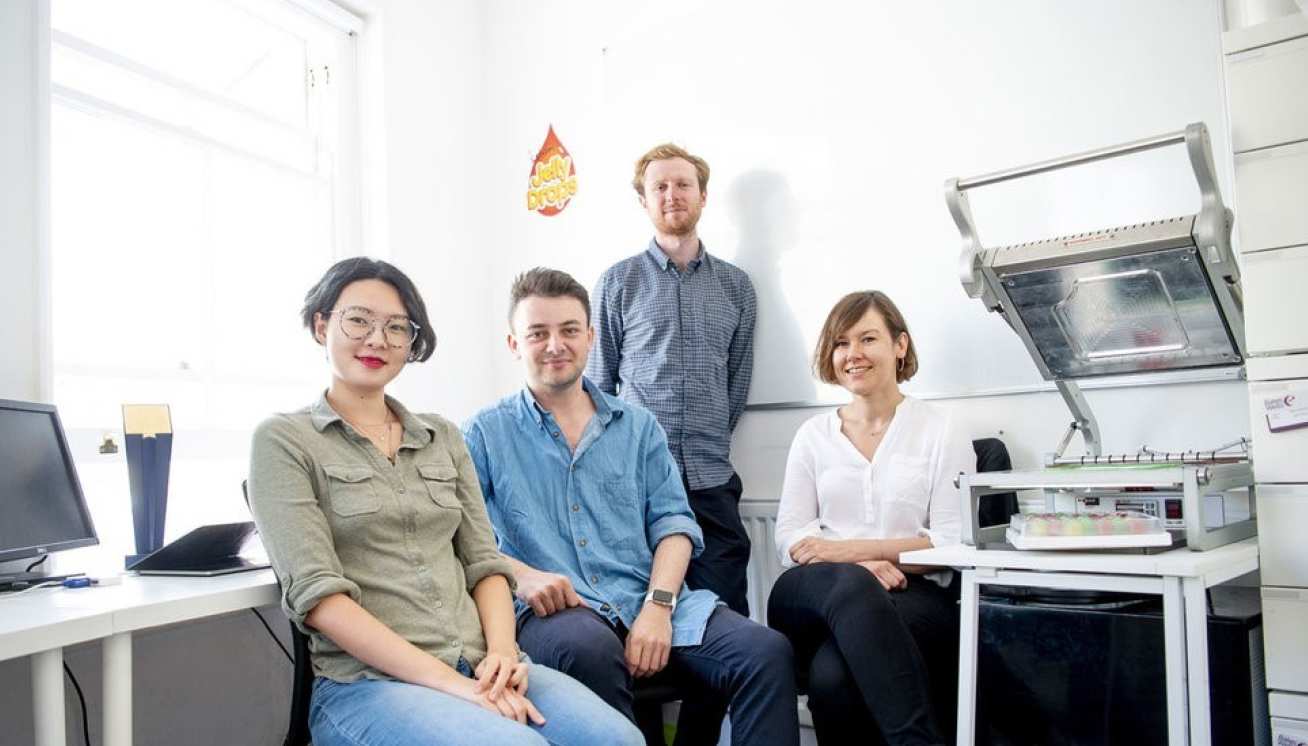
The team took part in the VCC in 2018, and since then has over 1,000 care homes on a waiting list to trial the hydrating sweets and over 15,000 individuals waiting to purchase them. They are also partnering with the Alzheimer’s Society and were the first to be accepted onto their new accelerator programme.
Founder Lewis Hornby said: “The Venture Catalyst Challenge (VCC) provided an incredible kick-start to our entrepreneurial journey through the programme of masterclasses, coaching and expert advice.”
Developing ideas and sharing experiences
Humanising Autonomy is building human-centred tools that define how autonomous systems interact with people through better understanding of human behaviour. Their pedestrian intent prediction platform makes autonomous vehicles safer and more efficient in urban environments.
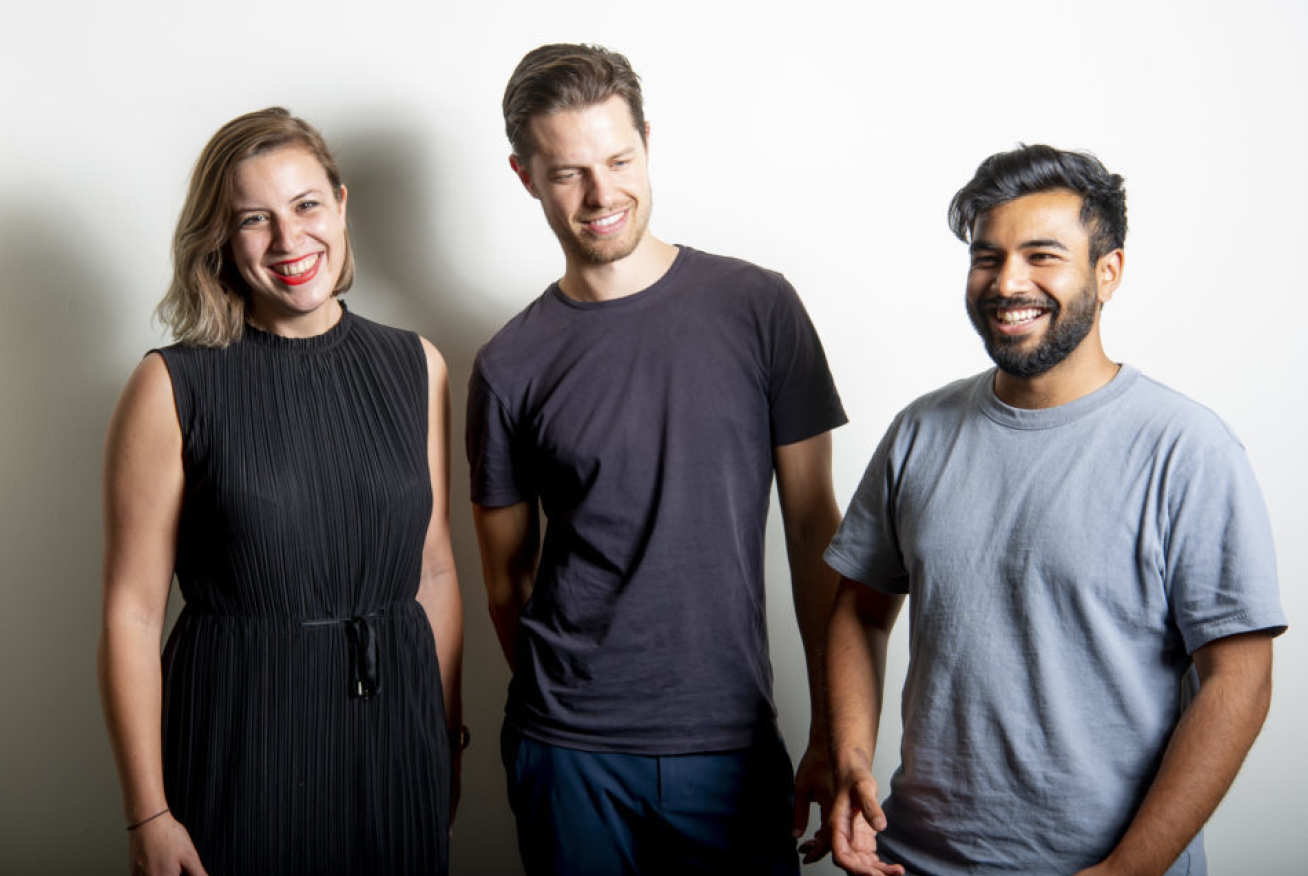
Co-founder Maya Pindeus said: "We joined the Venture Catalyst Challenge in 2017 with an idea, a prototype we developed during our final year and the drive to turn this into a business.” Since then the team has grown to over 15 people and they have started collaborations with mobility partners. Earlier this year they raised a funding round of more than $5 million.
2018’s VCC were Momoby, who are developing a small device that can test for diseases with a known impact on pregnancy by using a single drop of blood. The World Health Organisation recommends that every pregnant woman be tested for HIV, syphilis and Hepatitis B, however many women in developing countries still struggle to access this type of prenatal care. 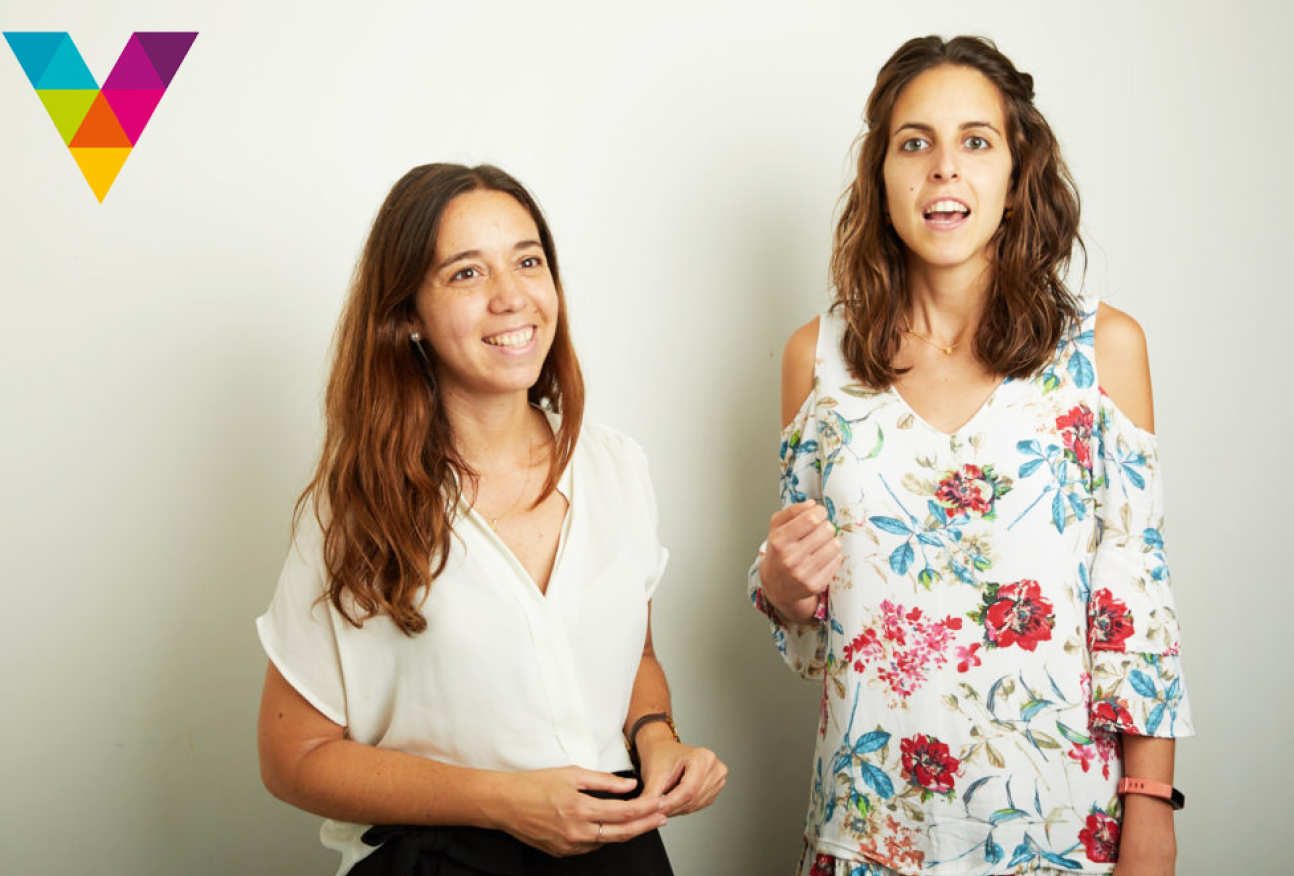
Speaking about their participation in the VCC and also WE Innovate, Imperial’s programme for women entrepreneurs, co-founder Ana Luisa Neves said: “The team met through our PhD projects, which are quite different, but sitting next to each other, we always found great value in sharing our experiences and in looking for opportunities for collaboration. We also have a shared interest in global health, technology and innovation.”
Article text (excluding photos or graphics) © Imperial College London.
Photos and graphics subject to third party copyright used with permission or © Imperial College London.
Reporter
Joanna Wilson
Communications Division